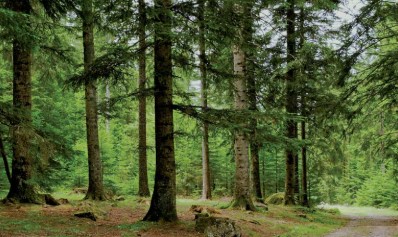The development of the Sala Al Jadida forest is part of a broader national strategy that blends ecological restoration, infrastructure planning, and coordination with local stakeholders. Far from being neglected, this initiative reflects a long-term vision aimed at transforming the site into a model of sustainable urban nature management.
Located on the edge of the new city, the forest serves as a vital green lung for the Rabat-Salé-Kénitra metropolitan area. Home to a rare cork oak ecosystem, it draws large numbers of visitors each day, offering a space for exercise, leisure, and relaxation. Its value lies not only in its natural richness, but also in its social and recreational potential.
Current management efforts are guided by a participatory approach aligned with Morocco’s 2020–2030 Forests Strategy. The goal is to rehabilitate degraded areas while enhancing the forest’s long-term value. Urban pressures are well documented—illegal dumping, vehicle access, and public misconduct—and a range of responses has been put in place. These include regular cleanups, public awareness campaigns, and a continuous on-site presence to monitor and protect the area.
Reforestation efforts for 2024–2025 have been tailored to the natural life cycle of cork oak trees. Young saplings are now shielded by protective fencing designed to guard against trampling and grazing. Initial temporary barriers have been replaced with more durable structures to ensure long-term protection.
Infrastructure upgrades are also underway. Efforts include improved signage, new waste collection points, and expanded urban furniture. Waste management—a recurring issue—relies on cooperation between several entities, ensuring that responsibility is shared and coordinated across institutions.
Funding for the project follows standard regulatory procedures and covers a wide range of components, from construction work and ecological monitoring to staffing and community outreach initiatives.
Recent tree removals in the area have raised some concern, but officials emphasize that these interventions were strictly limited to dead trees and carried out in accordance with forestry health and safety guidelines. These operations are part of a public contract and adhere to current best practices. In contrast, tree removals linked to nearby roadwork—frequently cited in public criticism—occurred outside the jurisdiction of the managed forest zone.
A large-scale recreational development plan is also in the works, backed by a 15 million dirham investment as part of the regional development program for 2022–2027. Initial construction is slated to begin in 2026. The project includes banning motor vehicles within the forest, creating accessible walking trails, and building environmentally friendly recreational areas.
Unlike Rabat’s more established urban forests, Sala Al Jadida remains in its early stages of development. However, it has been given priority status, with the clear aim of turning it into a benchmark recreational space that meets national standards.
Concerns like stray dogs and other nuisances are being addressed through inter-agency coordination. While permanent solutions are still in progress, interim safety measures are already in place to protect visitors and the forest ecosystem.
